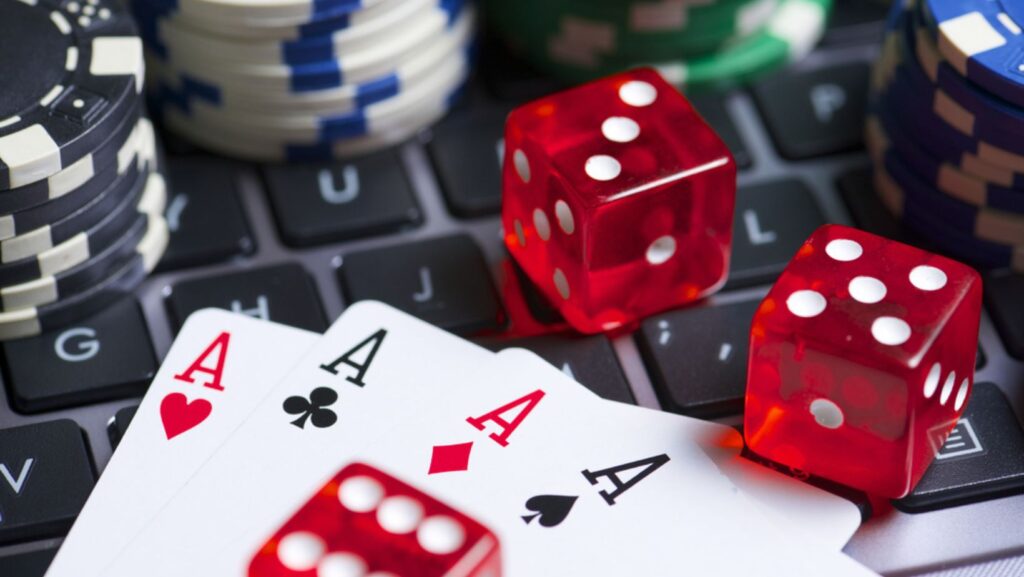Vicious Cycle or How Stress Drives Problem Gambling
The slots spin alluringly on the screen, offering the gambler a temporary escape and a rush of feel-good brain chemicals. But when the money runs out and real life comes crashing back down, the stress returns even worse than before. This begins a vicious cycle in which gambling causes distress, and distress causes more gambling.
Stress Drives Gambling Urges
Stress has long been linked to addictive behaviors like drug abuse and binge eating. As an addictive disorder, gambling seems to follow the same patterns. Studies show that stressful life events often precede urges to play.
In a 2021 study, researchers surveyed nearly 500 people receiving treatment for gambling problems. More than 80% said they gambled to relieve stress, and 78% reported gambling more when stressed. Over half said stress contributed directly to their problem.
Another 2021 study asked people to record their moods and gambling urges periodically through an app. Urges to gamble at SupraPlay spiked dramatically on high-stress days compared to low-stress days:
Table: Daily gambling urges during high and low stress
| Condition | Average gambling urges |
| High stress days | 4.2 out of 10 |
| Low stress days | 2.1 out of 10 |
These findings suggest stress acts as a trigger for gambling cravings and may lead people to gamble more frequently or impulsively. Like a problem drinker turning to alcohol after a bad day, problem gamblers may chase casino games or slots to self-medicate their distress.
Psychology Behind Stress and Gambling
Psychologists propose several explanations for why stressful events and circumstances seem to drive problem gambling:
Escapism
Gambling offers a powerful escape from real life and all its stressors. By narrowing one’s focus down to games of chance, gamblers can momentarily forget about money troubles, work pressures, relationship conflicts and other stresses waiting for them. This escape becomes especially tempting when stress feels overwhelming.
Self-medication
Gambling causes the release of feel-good brain chemicals like dopamine and norepinephrine. For some, chasing these chemical highs becomes a form of self-medication to relieve anxiety and depression. Stress may biologically ramp up this urge to gamble by activating the same brain pathways involved in addiction and motivation.
Coping Strategy
Some who gamble excessively report they often use gambling as a misguided coping mechanism when stressed. By gambling, they hope not just to escape stress temporarily but to actually win money and solve their financial problems. Of course, the house usually wins, and gambling for money typically only leads to more stress.
Impaired Decision-making
Stress has been shown to impair regions of the brain responsible for decision-making, self-control and evaluating future consequences. This effect helps explain why even casual users may gamble more recklessly when under stress. In the heat of the moment, the stressed brain places more weight on instant gratification and less on long-term risks.
Gambling Leads to More Financial and Emotional Stress
While gambling may provide momentary escape from stressful circumstances, it often makes problems worse in the end. The more both casual and addicted players chase games of chance, the more financial and emotional consequences they’re likely to suffer—leading right back to more stress.
Potential stress effects of excessive gambling include:
- Financial losses and debt
- Relationship conflicts over money
- Mental health issues like depression and anxiety
- Legal problems
- Job loss and career setbacks
- Feelings of shame and hopelessness
As these stresses compound, the temptation grows to gamble again for relief—restarting the vicious cycle.
In one National Epidemiologic Survey on Alcohol and Related Conditions analysis, people with gambling disorder were over 15 times more likely to have financial problems and nearly five times more likely to suffer from anxiety disorders compared to non-gamblers.
Breaking Free of the Vicious Cycle
For problem users trapped in the ongoing loop between stress and gambling, experts often recommend counseling and support groups to help:
- Develop healthier coping strategies
- Address underlying factors driving urges
- Learn to manage stress and emotions in everyday life
- Restore finances and rebuild relationships damaged by gambling
Cognitive behavioral therapy helps people rewire thought patterns over time, while new hobbies and social networks offer alternative outlets for stress relief and a sense of meaning.
For some, medication like antidepressants may also temporarily help overcome cravings and anxiety fueling the gambling/stress cycle. However medication alone cannot change the underlying behavior patterns and harmful conditioning.
With time, effort and support, even problem players with years caught in the vicious stress/gambling cycle can learn to break free and regain control of their lives. But overcoming addiction requires patience and perseverance through an often uneven recovery.
Path Ahead
As research continues uncovering complex links between stress and disordered gambling, more targeted and personalized treatment options may become available to help interrupt these self-destructive cycles before they spiral out of control.
While genetics and brain chemistry play roles, environmental stressors and learned coping behaviors drive problem gambling as well. This means research into new psychotherapies, social programs and public policy interventions could uncover innovative ways to protect vulnerable groups from gambling’s temptations during periods of high stress.
Until then, a wealth of traditional treatment options exist, along with vital education on the psychological traps that cause gambling and stress to feed into one another.

